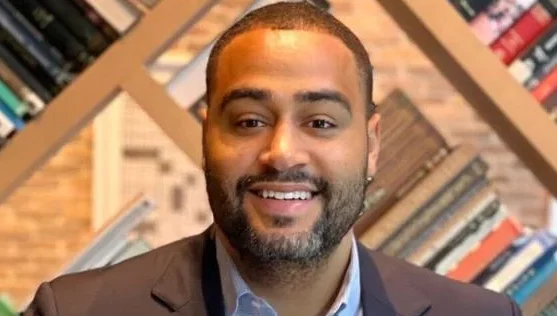Growing up, what inspired Michaeljohn Green the most was his family’s integrity and will to help humanity, lessons he’s carried into his adulthood and career.
Green is the vice president and director of community development at the Dade County Federal Credit Union(DCFCU). There, he helped create the RISE Miami-Dade Fund program, which has provided $20 million in low-interest loans to Black-owned, small and microbusinesses across the county since the start of the pandemic.
“I think that I’m a combination of both of my parents,” said Green. “My mother is constantly trying to figure out how she can make the world a better place and give back. She was a teacher for a while. She’s worked for a host of different nonprofits. And my father is a great leader and a finance professional.”
Green’s own work has helped improve the quality of life and experience of countless Miamians.
“One of the great Black leaders is Martin Luther King, and a lot of his last speeches were about the economic inequality that is all across America,” said Green. “There is a stark difference between the wealth of African Americans and the wealth of other families in America.
Green’s résumé is impressive. He graduated from Harris Stowe State University in St. Louis in 2009 with a Bachelor of Science in information technology management. He played basketball for a few colleges before finding his passion in community economic development. He has worked for many impressive organizations, such as The Bank of Montreal. And as he climbed the corporate ladder, he noticed fewer and fewer Black and brown individuals around him.
“Once, I was the only African American or person of color in the office, but I think that that is slowly changing,” he said. “[But] there definitely hasn’t been enough change. The focus of a lot of Black leaders [has been] to reach a level of equality where we are not only treated the same as other individuals or races, but we also have the same amount of wealth, resources and control of our own communities.”
In 2020 Green was hired by DCFCU to run the RISE program and lead community development activities. RISE rolled out in July 2020, when it was fully funded and began giving loans to local Black-, minority- and women-owned small businesses.
Miami-Dade commissioners through federal CARES Act stimulus funding provided millions for RISE, which so far has given loans to 4,500 families and 900 businesses. To qualify, businesses must have no more than 50 employees, a minimum credit score of 520 and a maximum $5 million in annual revenue.
“There just isn’t a ton of data on Black businesses in Miami-Dade,” said Green. “So, we’re looking to try to capture that information so that we can continue to provide a high quality of service and really find the pain points that keep Black and brown businesses from growing.”
One story of a local community enterprise growing through RISE support comes from Keith Lorren, owner of Spice King, a small business based in Opa-locka. He went from selling his spices in a few stores to showcasing them in several thousand Walmart stores across the country.
“He was able to take his business to the next level,” said Green. “There are hundreds if not thousands of stories like that.”
Green’s work continues to help pave the way for thousands more people to gain new economic opportunities.
“I’m a combination of both of my parents,” he said. “My dad worked extremely hard to take care of his family and my mom made sure that we understood the history of African Americans and Africans across the globe. She made us understand that you have to give back and try to make the world a better place.”
Kali-Ray Skinner is an NBCU fellow at Florida International University.


